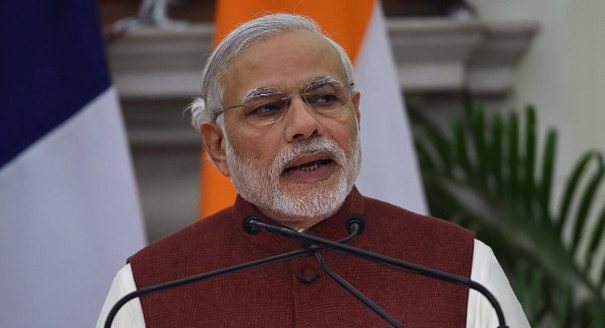Europe as a collective has long been a missing link in India’s engagement with the world. Brussels too has found it hard to raise its profile in New Delhi, despite the growth in India’s economic and political salience in the twenty-first century. It was not surprising, therefore, that the two sides have had considerable difficulty in implementing a 2004 declaration on building a bilateral strategic partnership.
Indian Prime Minister Narendra Modi arrives in Europe on March 29 to inject a measure of pragmatism into the bilateral relationship and widen its scope and depth. As a leader with sharp political acumen, Modi also understands the current traumatic moment in Europe after the March 22 terror attacks in Brussels and the November 13, 2015, attacks in Paris. As Brussels copes with an unprecedented threat enveloping it, Modi will hope that Europe can better appreciate the terrorist challenge that India has continued to endure since the late 1980s.
India’s past neglect of Europe was in part due to a lack of attention and capacity. New Delhi neither understood the significance of the European project nor mastered the technique of navigating Brussels for its national benefit. India found it easier to focus on bilateral partnerships with key European actors like the UK, Germany, and France with which it had historic relations.
If Europe had no powerful champion in New Delhi, Brussels too found it rather hard to deal with the ponderous Indian bureaucratic system. Modi, who has brought much energy to Indian diplomacy since entering office in 2014, was eager to connect with Europe early on in his tenure as prime minister.
But his plans to visit Brussels in April 2015 were vetoed by Italy, which was locked in a diplomatic row with New Delhi over the arrest and trial of two Italian marines for the killing of two fishermen off India’s coast in 2012. Italy claimed Indian courts had no jurisdiction in the matter.
Whereas the previous government had allowed the issue to drift and turn into a knot, Modi in typical fashion ordered his diplomats to find a way out. India has now joined an arbitration procedure and has agreed to abide by the verdict of the international tribunal that will rule on the matter. By moving the issue out of the bilateral ambit, Modi has cleared one of the current hurdles in India’s political engagement with Europe.
If problem solving has been one of the trademarks of Modi’s foreign policy, the other distinguishing feature has been the determination to put Indian diplomacy firmly in the service of India’s developmental goals.
New Delhi is acutely conscious of Europe’s pole position in India’s international economic relations as the country’s largest trading partner and biggest foreign investor. India is also aware of Europe as a repository of scientific knowledge and advanced technologies. Modi will be eager to mobilize a stronger European participation in his major domestic initiatives like Make in India, Clean India, Smart Cities, and Digital India. He will also want to bring in European technologies to develop innovative solutions to India’s developmental challenges.
At the top of Modi’s priorities in Brussels is the revival of stalled talks on an EU-India bilateral trade and investment agreement that began in 2007. There is no great enthusiasm for trade liberalization in India’s ruling party, but amid the continuing decline in the country’s absolute trade figures since 2014, Modi wants to shore up India’s commercial relations with key partners.
India and EU were due to resume the trade talks in 2015. But New Delhi pulled out at the last minute when Brussels banned the sale of 700-odd pharmaceuticals from India. Now, Modi is also eager to have some of the current European restrictions on the movement of Indian professionals lifted. And he wants Brussels to give India’s IT sector data security status, which is critical for expanding the sector’s business in Europe.
Brussels too needs Indian professionals to boost Europe’s economic competitiveness. The EU is also seeking better market access in India for a number of its goods, including wines and automotive parts. There is much room here for some give-and-take. A broad understanding between Modi and his European interlocutors on mutual concessions would signal a new political commitment in both India and the EU for a deeper commercial relationship.
Beyond the commercial arena, Modi will want to generate a deeper political understanding of how to cope with the rapid breakdown of the old order on the Eurasian landmass and the adjacent waters of the Pacific and Indian Oceans. Since the end of the Cold War, both India and Europe have largely focused on reconstituting their domestic political economies. In terms of their regional interests, Brussels would hardly look beyond Europe, and New Delhi was tied down by developments in the subcontinent.
The rise of China, the assertiveness of Russia, and the temptations of retrenchment in the United States make it a lot harder for New Delhi and Brussels to cope with the rapid change in the Middle East and the Far East. Both India and the EU are under some compulsion to take on larger security responsibilities in Eurasia and the Indo-Pacific. As middling powers, New Delhi and Brussels have a greater chance of success if they strengthen their partnership and improve bilateral strategic coordination on regional affairs.
Carnegie India will be launched in New Delhi in April 2016.






.jpg)